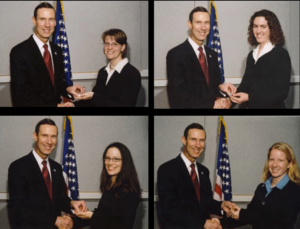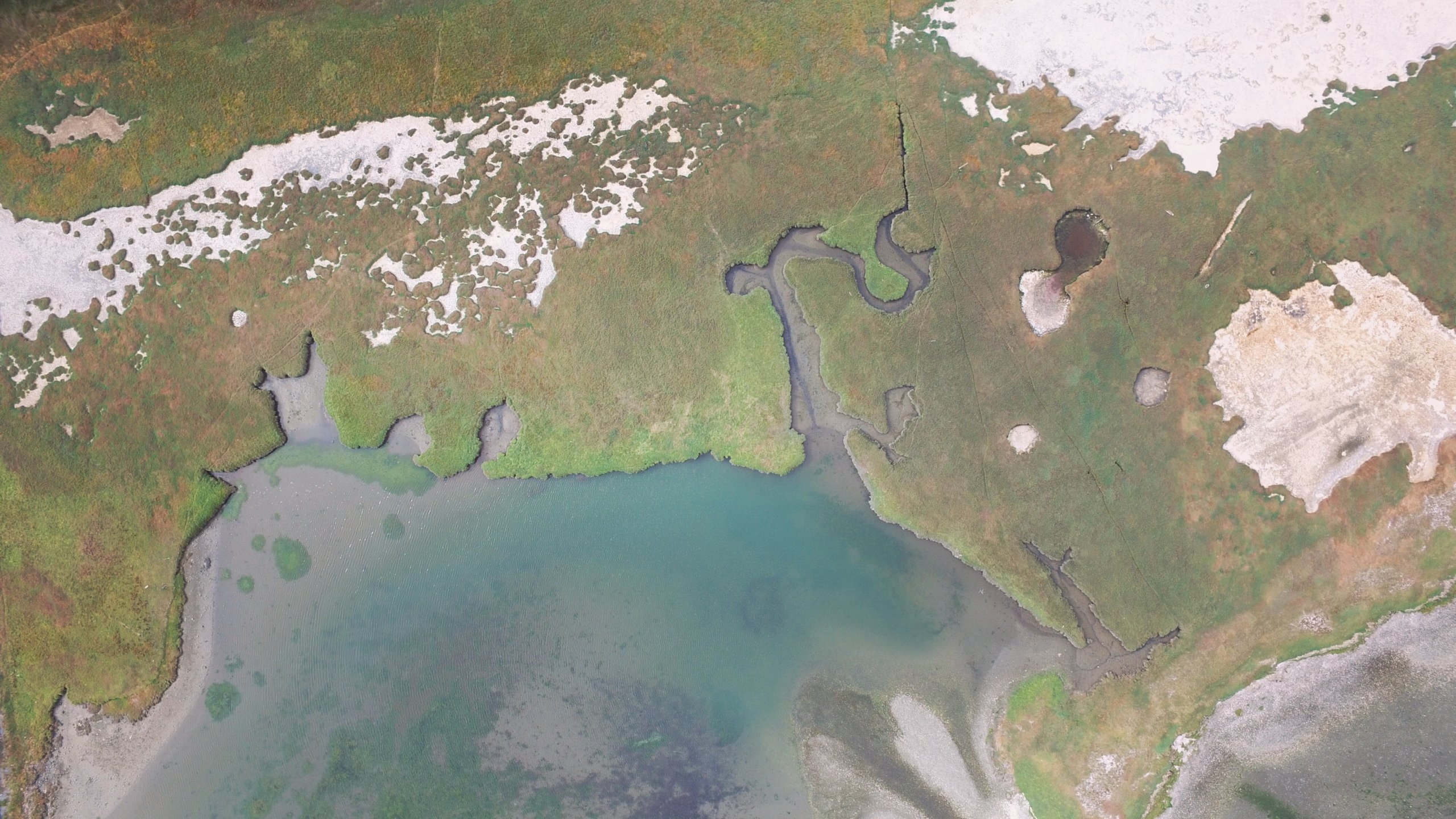When Chad and I prep scientists to participate in policy briefings, we often share our own experiences of entering the policy arena for the first time as Knauss Marine Policy Fellows. Chad talks about finishing his dissertation on a Friday in 2005 and showing up the following Monday in the Senate Commerce Committee, bright-eyed, bushy tailed, and expecting to bring the latest scientific discoveries to members of Congress. Only then he discovered that Congressional offices don’t have direct access to journal articles (or even read academic papers). I tell scientists about the time I spent on the Hill in 2003, helping to draft bill language for reauthorization of the Marine Mammal Protection Act in the House Committee on Resources – I was suddenly expected to be an expert on marine mammals and on how to write arcane legislative language… neither of which were part of my actual skill set at the time.
Chad and I have both incorporated insights from our Knauss fellowship experiences into our current work with COMPASS at the intersection of science and policy. When COMPASS does communications and policy trainings for scientists, we talk about the idea that understanding these cultural differences is the key to making effective connections between the two worlds. I’ve been especially curious to hear what others experienced when they stepped out of science and into the policy world, and since it’s been nearly 10 years since I started my fellowship in the Subcommittee of Fisheries, Oceans, and Wildlife in the House Committee on Resources, I decided to ask some of the other legislative fellows in my cohort. Through a brief series of questions, I asked a few of them about the lasting take homes they see from their fellowship experience, how it has shaped their worldview, and to reflect on what they saw as key differences between the culture of science and the culture of policy.

The 2003 Knauss Fellows who shared their insights for this post with then-NOAA Administrator, Vice Admiral Conrad C. Lautenbacher, clockwise from top left: Barbara Peichel, Rachel Feeney, Bridget Ferriss, and Sunshine Menezes.
“It was 180 degrees different,” said Rachel Feeney, a former 2003 fellow who is now the social impact analyst for the New England Fishery Management Council. “As a student, I was narrowly focused on doing whatever it took to getting my advisor’s signature on my thesis. As a fellow, you are instantly working on a worldwide stage, and you instantly see the larger context. The policy world has many more moving parts.”
The biggest cultural whiplash seemed to surface, however, with respect to how scientists and policymakers arrive at their assumptions. Sunshine Menezes, now Executive Director of the Metcalf Institute for Marine & Environmental Reporting at the University of Rhode Island Graduate School of Oceanography, put it this way: “In science, you have to prove your assertions through repetition and statistical significance. In policy, the validity of one’s assertions often hinges on the effectiveness of the message, not the facts (or lack thereof) within the message. While I had expected this culture shift, I was surprised at just how easy it was to manipulate facts in the world of policy.”
Barbara Peichel, now working as a Watershed Project Manager for the state of Minnesota, had a very similar reaction. She reflected: “Probably the most startling moment I remember was when Senators were talking about climate change on the [Senate] floor and the fake science had as much weight and floor time as the real science. I thought there should be a ‘truth gong’ or something so the American people could know what was true and false. I mean this was going in our public record!”
The high stakes for effective science communication rose to the top as a common theme for all of the 2003 fellows I reconnected with — something that is of course near and dear to our hearts here at COMPASS. Everyone seemed to come away from the fellowship with a sense that science really does matter in the policy world, but only if it could be explained in a clear, concise matter that relates to the relevant policy issue of the day.
“I became convinced that effective communication of science was not a luxury, but a necessity,” said Menezes. “In the absence of effective science communication, it is too easy for research results to be misrepresented to the public.”
The Knauss Fellowship is only one of the many opportunities open to academic scientists to spend time embedded in the world of policy and it’s fair to say that my former cohort of Knauss fellows is an impressive bunch. Ten years down the road, they are working as scientists, educators, in state, federal, and regional governing bodies, and as leaders of NGOs and other non-profits. They had a lot of really terrific insight to share about how time spent in the policy world has shaped their career trajectory, worldview, or both.


